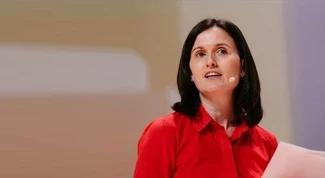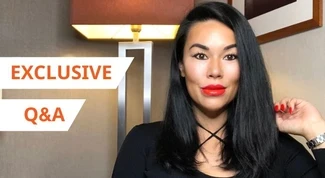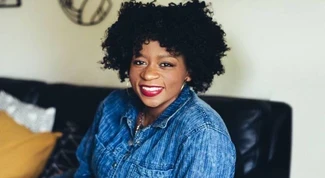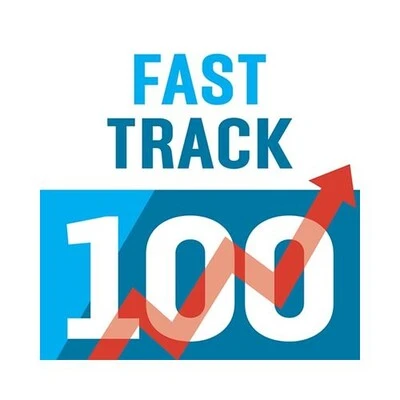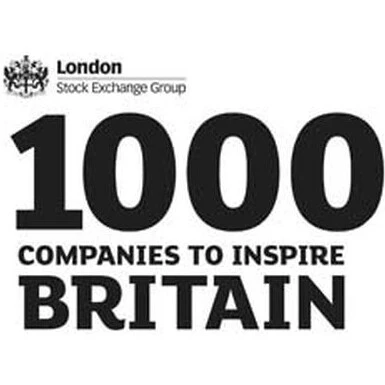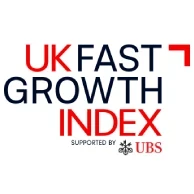Esteemed futurist, William Higham, is a respected predictor of upcoming trends. He has worked with some of the biggest names in music, entertainment and more to build innovative strategies for future success. Also the founder of Next Big Thing, William is incredibly popular on the speaking circuit, booked for his valuable insight into the future of business.
We recently sat down with William to hear his predictions for a post-Covid-19 world, and learn how to build a successful workplace team.
Q: What are your top tips for attracting and retaining the right talent?
“I think it’s important to note that, increasingly, people are looking for more than just money, and this might seem odd in a world that seems uncertain.
“In this period where people are beginning to reassess what’s important, we’re really starting to see that flexibility and positive community are most valuable, as people are enjoying the time spent working with other people.
“Giving people more freedom and autonomy is increasingly important, and the idea of people feeling that they’re working for a particular purpose is vital – it doesn’t have to be a political purpose necessarily, but some sort of joint purpose.
“If you’re an employer, look at some of these new needs and realise that customers and employees are not that far apart. An employee is also a customer of someone else. So, look at what people are caring about now compared to a few years ago, and start thinking, ‘okay well, maybe if these customers are wanting this, maybe our employees want this too’.”
Q: As a consumer trends consultant, what do you think is the ‘next big thing’?
“There are three trends, really, and I call them the three Cs which stand for control, calm and community. We’ve seen these trends appearing over the last few years, and they are all trends that COVID-19 and the lockdown have really accelerated.
“During lockdown, there have been a few new trends and I think a few of those will fall away. But the real core of what lockdown has done to some of the big trends is either decelerate or accelerate.
“In the midst of all of this, people have felt helpless. I think many people feel that there are lots of things happening out of their control or even out of the Government’s control. They’re not sure the Government is doing their best for them, or that brands are doing their best.
“I think we’re going to see more and more people wanting to get involved and take their lives into their own hands, and brands will need to reflect this. People will want to be prepared for things, and so brands will need to help them learn new skills and take control.
“I also think there’s this whole idea of calming down. We’ve been running in this marathon for years, wanting to buy the latest thing, rushing our careers, and wanting everything about growth. And I think one of the things that COVID’s done is stop us in our tracks. When you stop, having been running for a long time, that is when it’s time to ask, 'am I running in the right direction? Should we keep running next time? Should we walk? Where are we going?'.
“Now is a time of reflection. We’re looking back more and more and considering, 'maybe people did things better in the past,' because, certainly, the anxiety levels pre-COVID-19 were just through the roof. The depression and stress levels across the globe have been enormous. So, relaxing a bit, looking back, taking stock and deciding what’s really important and what should motivate us, are the sort of things that will be really important to people moving forward.
“And then the third trend is based around that whole idea of taking stock and resetting – ‘the big reset’. This means really considering what does matter, and increasingly people are starting to see that community, friends and family are what matters.
“The world is an increasingly volatile place. You don’t know if you’re going to lose your job tomorrow. You don’t know if you’re going to lose your savings. No one knows what’s going to happen, a new technological advancement could even get rid of your whole industry!
“Increasingly, the local community is becoming more important with so many people working from home. In the last year, people have been forced to stay in their local communities, people who might have commuted out early and commuted back late are suddenly looking at their local community and shopping in stores they never shopped in before, talking to neighbours they’ve never spoken to before.
“There’s this whole idea of interacting with other people and, again, from a brand point of view, there are so many things that brands can do to help that, to bring people together and localise their offerings.
“People can move from one brand to another these days, but, if you make them feel that they’re part of a community, that the brand is looking out for them and they feel they’re having some influence on the brand, that will be where the loyalty comes from.”
Q: Why is it important that businesses create a culture of innovation?
“The world is increasingly uncertain, becoming a global village in which everything is so connected that one thing can change everything. A new piece of technology, a pandemic, something connected with global warming, anything like this, if it happens in one area, it will affect all areas, whether that’s financially or literally.
“Because the world is less certain, we have more ‘grey swans’. As many know, a ‘black swan’ is what you call something that you really couldn’t have expected.
“A grey swan is something that you don’t know exactly when it will happen, but you can be pretty sure it’s likely to happen. Like an airborne pandemic, for example, it certainly wasn’t a surprise that it was going to happen, perhaps it was the intensity that surprised a lot of people.
“So global warming, the fact that we’re starting to see more ground-up organisations, people being more concerned about what’s happening with governments, new pieces of technology that are going to be disruptive – these are all grey swans. These are things that are likely to happen, and you have to be ready for them, even if you don’t exactly know when they will happen.
“For all these reasons, every company needs to be ready to adapt. If one of these things happens, you can’t just sit back and say, 'we’re the top-selling brand in our sector, we’re going to be fine for a few years,' because you may not be. The leader in any market could get knocked sideways from one of these grey swans, like a new piece of technology or a new competitor you weren’t expecting. So, for all these reasons, every company now needs to have a culture that is ready to adapt to whatever new circumstances it faces and also be ready to adapt to what the customer wants coming out of that.
“Companies need to be change-friendly and customer-focused. Those are the companies that are going to succeed in the 2020s and 2030s.”
Q: What trends have appeared throughout the pandemic that you think are here to stay?
“It’s very hard when you’re in the middle of something to try and imagine what it will be like in the future. I put trends in three categories, identifying which category each new behaviour falls into. I call the categories environment-specific, environment-friendly and environment growth.
“Environment-specific trends arise purely because of the environment. For example, the increasing importance of hand hygiene and masks now – that is something very specific to this time. Post-pandemic there will be slightly more people wearing masks than before, but that’s likely to fade away, making it an environment-specific trend.
“There are other trends that were important before and have been maintained, one of these being health in general. We have seen people become increasingly focused on their physical and mental health, which is something that is evidentially continuing.
“Then there are other trends that the pandemic has actually accelerated, the core trend there being online behaviour. Many more people are now using the internet for video calls and e-commerce in areas they’ve never done before.
“If it’s something that actually adds to your life, that you enjoy and helps you, then you will continue doing it, and I think the pandemic has really accelerated this.
“We will continue to see growth in several trends, such as the trend of localism which has recently rocketed. The key is to determine which of these trends are specific to that environment, and which have actually accelerated or decelerated.
“For example, sharing food was a huge growing trend but that will ease back a little bit, making it a decelerator. You’re not going to see peanuts on the bars of pubs for a while!”
Q: How can businesses prepare for a post-Covid world?
“I don’t know of any business that isn’t having to think about how it might adapt and how it might anticipate the future. So, to try and help I’ve come up with four things that any business can do to prepare.
“The first one is to track the trends, the second is to identify the new needs, the third is to become change-ready, and the fourth is diversifying what you do.
“So, number one – track the trends. This is about understanding which new behaviours are going to last. You must track the trends and consider, ‘out of all the new behaviours that are happening at the moment, which ones are going to grow? Which ones are going to decline?’ Keep an eye on those and then determine which of those trends are going to be important to you.
“Number two – identify the new needs. This is increasingly important today as the businesses that are succeeding are customer-focused. Right now, customers have so much choice. The companies that can anticipate what the customer’s new needs are going to be will succeed.
“At the moment, with customers’ needs changing all the time, you have to be able to anticipate those needs. You have to ask yourself, ‘what are their needs now and what will their new needs be?’ And if you can do that before your competitors, you can provide that solution first. So, identify what the new needs are going to be and then adapt accordingly.
“The third thing is – become change ready. We are living in an incredibly volatile era. If you look at the speed at which innovations are coming in and people are adopting them, it really is rocketing. The world is much less certain than it used to be, definitely over the last few decades. As a result, the companies that are going to succeed are the companies that are ready for change.
“It’s not enough just to say, ‘right, we know what’s going to happen in five years, so we’re going to adapt for that.' You need a change-friendly culture, and you need to understand how trends work to be ready.
“Finally, you have to diversify what you do. One of the things we saw within the pandemic, certainly in terms of supply chains initially and then in terms of markets, was that the companies whose focus was on just one area were incredibly vulnerable.
For example, if you are an airline and all you do is fly people around the world and suddenly people can’t fly, what do you do? It’s a very vulnerable place to be. We also saw this with supply chains. If you have supply chains in China and something happens in China, you’re in trouble.
“You have to be ready because your market could suddenly disappear, and so we need to think about core strengths. What else are you good at? Look at all these new needs customers have, what can you do to gain revenue from those? How can you take advantage of these changes? Think about how you could diversify your offerings.
“To summarise – track the trends, identify the new needs, become change-ready and diversify what you do. Four things that every company could start doing tomorrow.”
Book William Higham
Contact the Champions Speakers agency to provisionally enquire about William Higham for your event today. Simply call a booking agent on 0207 1010 553 or email us at [email protected] for more information.
